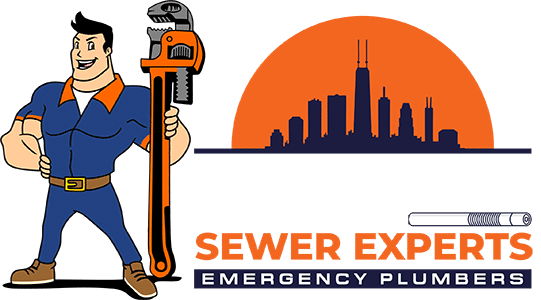Sewer line issues in your Chicago property can lead to a range of problems, from unpleasant odors to potential damage to your property’s foundation. When faced with a damaged sewer line, it is crucial to act quickly and engage the services of a qualified plumbing professional like Chicago Sewer Experts to diagnose the problem and carry out the appropriate repairs or replacement procedures.
In this article, we’ll explore the process of sewer line repair and replacement for your residential or commercial property in Chicago. We’ll cover the common causes of sewer line damage, symptoms to watch for, and the various techniques employed to repair or replace the damaged sections. Additionally, we’ll discuss how Chicago Sewer Experts can provide efficient and effective solutions to restore your property’s sewer system and minimize disruptions to your daily life.
Common Causes of Sewer Line Damage
Sewer line damage can result from a variety of factors. Understanding these causes can help you minimize the risk of damage and potential plumbing emergencies. Some common reasons for sewer line damage include:
1. Root Intrusion: Tree roots can penetrate sewer lines in their search for water and nutrients, causing blockages and potentially breaking apart the pipes.
2. Corrosion: Older sewer lines made of metal or clay are prone to corrosion over time, which can lead to cracks and deteriorating pipe walls.
3. Soil Movement: Changes in the soil, such as shifting or settling due to ground movement or construction activities, can exert pressure on sewer lines and cause them to bend or break.
4. Blockages: Foreign objects, grease, or excessive waste can clog sewer lines, leading to slow drainage or completely blocked pipes.
Symptoms of Sewer Line Issues
Timely intervention is key in addressing sewer line issues, so it’s essential to recognize the symptoms of potential problems. These indicators can help you know when it’s time to call a professional plumbing service like Chicago Sewer Experts:
1. Foul Odors: Persistent unpleasant odors emanating from your drains or around your property could indicate sewer line damage.
2. Slow Draining: If multiple drains in your property are draining slowly or exhibiting signs of a backup, your sewer line might be damaged.
3. Structural Damage: Cracks in your home’s foundation or walls, sinkholes, or damp spots in your yard could point to a compromised sewer line causing leaks.
Sewer Line Repair Techniques
Several techniques are available to repair damaged sewer lines, depending on the cause and extent of the damage. Some common sewer line repair methods include:
1. Pipe Relining: For minor cracks or leaks, a plumber can insert a flexible tube coated with resin into the damaged sewer line. The resin hardens to create a new, durable interior lining that seals the cracks and prevents further damage.
2. Pipe Bursting: This technique involves pulling a new pipe through the damaged one, effectively breaking the old pipe apart and replacing it simultaneously. Pipe bursting is typically employed when the sewer line is too damaged for relining but does not require complete excavation.
3. Trenchless Sewer Repair: In situations where the sewer line damage is extensive but accessible, trenchless sewer repair methods like pipe relining and pipe bursting can be used to repair the sewer line without excavating your property.
4. Traditional Sewer Line Repair: If the damaged sewer line is not suitable for trenchless repair or the issue is too severe, traditional sewer line repair might be necessary. This method involves excavating the area around the sewer line, removing the damaged section, and replacing it with a new pipe.
Sewer Line Replacement Process
When repair methods are no longer viable, sewer line replacement might be the only solution to restore your property’s plumbing system. The sewer line replacement process generally involves the following steps:
1. Assessment and Diagnosis: A plumbing professional will assess the sewer line condition, often using a video camera inspection, to identify the issue and recommend the appropriate course of action.
2. Excavation and Removal: Once the damaged area has been identified, the ground above the sewer line is excavated to access the damaged pipe.
3. Pipe Replacement: After the damaged section of the pipe is removed, a new pipe segment is installed and secured with the proper fittings.
4. Backfill and Restoration: The excavated area is then backfilled, and the ground surface is restored to its original condition.
Working with Chicago Sewer Experts
When sewer line issues arise, it’s essential to enlist the expertise of a trusted plumbing service like Chicago Sewer Experts. These professionals offer:
1. Comprehensive Assessments and Diagnostics: Chicago Sewer Experts provide thorough evaluations of your sewer line conditions to determine the best repair or replacement options for your property.
2. Skilled Technicians: Their team of skilled plumbing technicians ensures repairs and replacements are performed correctly and efficiently, minimizing disruption to your daily life.
3. Quality Materials: High-quality materials are used for all sewer line repair and replacement projects, ensuring long-lasting and reliable results.
Prioritize Sewer Line Health for a Problem-Free Plumbing System
Preventing and addressing sewer line issues is crucial to maintaining your Chicago property’s plumbing system. By understanding the common causes of sewer line damage, recognizing the symptoms of potential problems, and being aware of the various repair and replacement techniques, you can make informed decisions when faced with plumbing issues. Work with experienced professionals like Chicago Sewer Experts to restore your sewer line and maintain a functional, efficient plumbing system for your property.
For efficient and reliable sewer line repair options and replacement solutions in the greater Chicago area, trust the expert team at Chicago Sewer Experts. Contact us today to address your property’s underground plumbing needs and ensure a healthy, well-maintained system for years to come.

Recent Comments